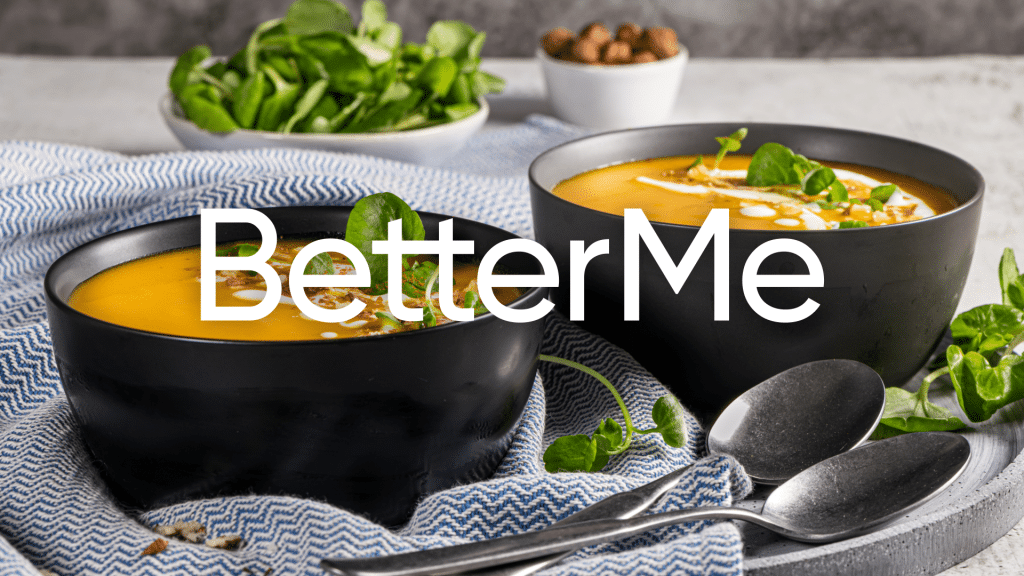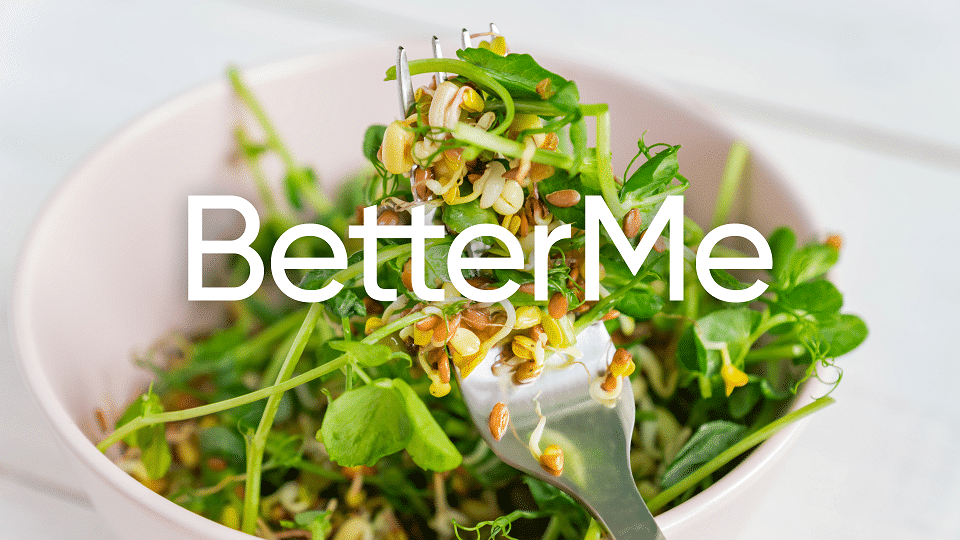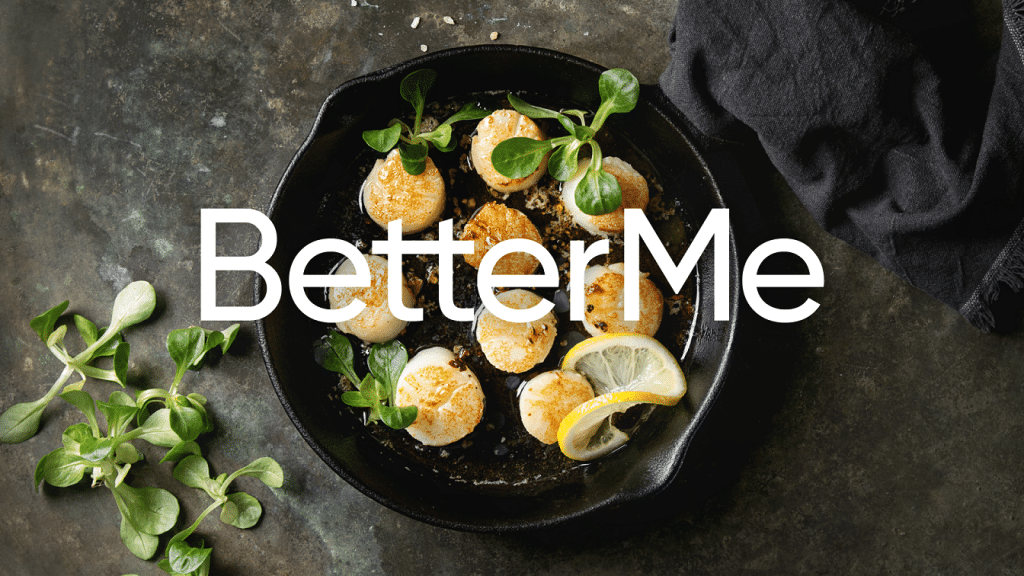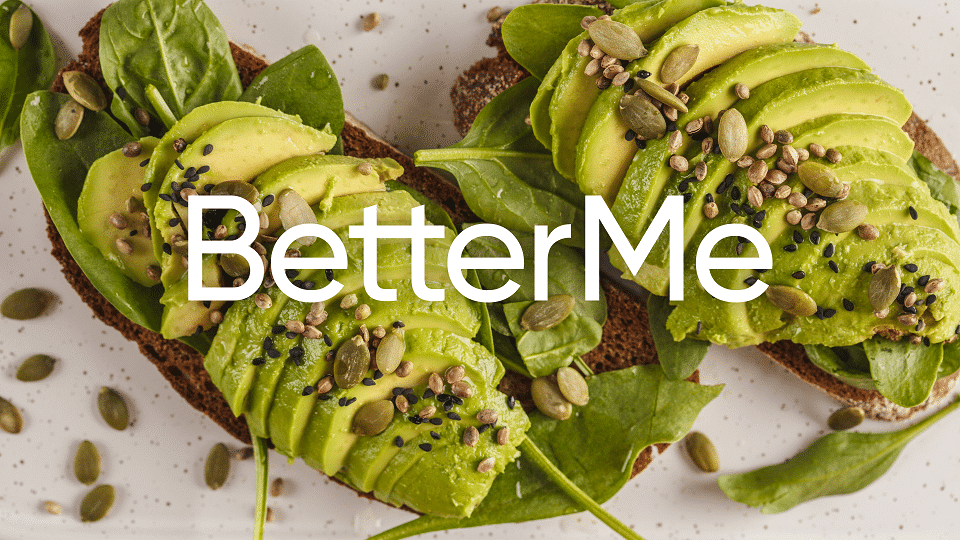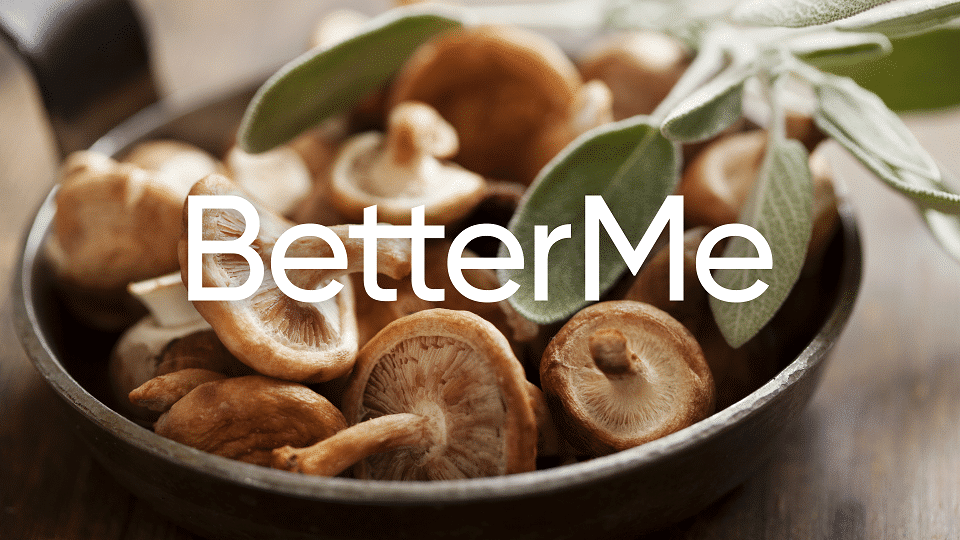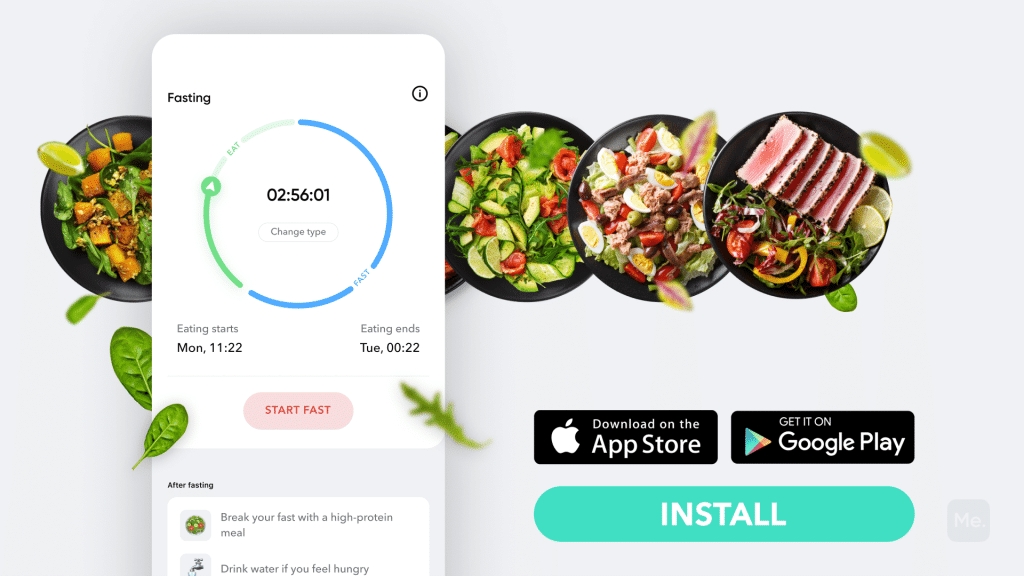The lifespan of humans has increased significantly over the past century due to advances in medical care and public health. However, lifestyle choices play a significant role in longevity as well. Nutrition is a key factor in maintaining good health and preventing disease. There are many different dietary approaches that are thought to be associated with a longer life and lower risk of chronic disease. The common thread among these diets is an emphasis on plant-based foods. This means that diets rich in vegetables, fruits, whole grains, and healthy fats are linked to better health and possibly a longer life span. If you’re wondering which foods might increase longevity, read on for a detailed list of longevity foods to add to your diet.
Get your personalized
meal plan!
How Does Nutrition Affect Longevity?
What you eat has a direct impact on your health. Poor nutrition can contribute to a host of chronic health problems, including obesity, heart disease, stroke, cancer, and type 2 diabetes. Conversely, eating a healthy diet can help reduce your risk of these conditions (8).
Specifically, the foods you eat serve the following functions that determine how well and how long you live:
Weight Management
Obesity has reached epidemic levels in the United States. According to the Centers for Disease Control and Prevention (CDC), more than one-third of adults in the U.S. are obese (1).
Obesity increases your risk of developing numerous chronic health conditions, including heart disease, stroke, type 2 diabetes, and certain types of cancer (1).
Eating high-calorie foods, and foods high in sugar and fat can lead to weight gain. These “empty calories” provide little in the way of nutrition, but can contribute to weight gain.
On the other hand, eating for longevity means filling your diet with nutrient-rich foods that help you maintain a healthy weight. These include vegetables, fruits, whole grains, and lean protein sources.
Chronic Disease Prevention
As mentioned above, obesity is a major risk factor for chronic disease (1).
In addition to obesity, other modifiable risk factors for chronic disease include high blood pressure, high cholesterol, and type 2 diabetes. All of these conditions might be preventable with lifestyle changes, including a healthy diet (8).
A healthy diet for longevity includes plenty of fruits, vegetables, and whole grains. These foods are rich in the fiber, vitamins, and minerals that protect against chronic disease. They are also low in calories and saturated fat, which helps keep weight in check.
In addition to a healthy diet, other lifestyle choices that can help prevent chronic diseases include not smoking, maintaining a healthy weight, and getting regular exercise.
Read More: Eating Seasonally: What Does It Involve And What Are Its Benefits?
Supporting Immunity
A strong immune system is essential for fighting off infection and disease. What you eat can play a role in how well your immune system functions (9).
Certain nutrients are important for immune system functioning, including vitamin C, vitamin E, and zinc (9). Foods that are rich in these nutrients include citrus fruits, leafy green vegetables, nuts, and seeds.
Additionally, probiotic-rich foods such as yogurt and sauerkraut can help support a healthy gut microbiome, which is also essential for immune function (9).
Fueling An Active Lifestyle
The benefits of regular exercise are well-documented. Exercise helps improve cardiovascular health, mental well-being, and can help prevent chronic disease (7).
In order to get the most out of your workout, it’s important to eat a nutritious diet that provides the energy you need to stay active. A healthy diet for longevity should include plenty of whole grains, fruits, vegetables, and lean protein sources.
Complex carbohydrates such as whole grains are a great source of energy for exercise. These foods are slowly digested and help sustain energy levels throughout the day.
Fruits and vegetables are also excellent sources of nutrients that are important for an active lifestyle, including vitamins, minerals, and antioxidants.
Protein is essential for muscle growth and repair. After exercise, your muscles need protein to help them recover and get stronger. Good sources of protein include lean meats, poultry, fish, tofu, legumes, and eggs.
BetterMe app will provide you with a host of fat-frying fitness routines that’ll scare the extra pounds away and turn your body into a masterpiece! Get your life moving in the right direction with BetterMe!
What Foods Increase Longevity?
There are specific food groups and nutrients that are thought to promote longevity. These include:
Antioxidant-Rich Foods
The benefits of eating a diet rich in antioxidants are many and varied.
Antioxidants scavenge damaging byproducts of cellular metabolism called “free radicals” (2).
Free radicals are unstable molecules with unpaired electrons. To become stable, they “steal” electrons from other molecules, causing damage to cells (2).
This damage has been linked to the development of many chronic diseases, including cancer, heart disease, stroke, Alzheimer’s disease, and other degenerative conditions (2).
The body has its own natural mechanisms for combating free radicals, but these systems can become overwhelmed. A diet rich in antioxidants is thought to help “top off” the body’s defenses, providing additional protection against free radical damage.
There are many different types of antioxidants, but some of the most important for human health include:
- Vitamins A, C, and E
- Carotenoids like lycopene and beta-carotene
- Minerals like selenium
Many of these nutrients are found in fruits and vegetables. The best antioxidant-rich foods to eat for longevity include:
- Fruits like berries, cherries, and oranges
- Vegetables like leafy greens, tomatoes, and squash
- Nuts and seeds
- Legumes
- Olive oil
- Green tea
Diets that emphasize these foods have been linked with a reduced risk of many chronic diseases (2).
The Mediterranean diet is a good example of a nutrient-rich, antioxidant-rich diet that has been linked with reduced disease risk and good health.
The diet includes plenty of fruits, vegetables, whole grains, beans, nuts, and olive oil. Fish and poultry are consumed in moderate amounts, while red meat is eaten only occasionally.
Read More: Healthy Sweet Snacks For Weight Loss And Beating Sugar Craving
Low-Calorie Foods
One of the most well-established longevity interventions is calorie restriction. Calorie restriction is defined as reducing calorie intake by 20-40% below what is considered normal for a given individual.
Studies of a variety of species, including rats, monkeys, and dogs, have shown that calorie restriction can increase lifespan by 30-50% (3).
The mechanisms by which calorie restriction confers its longevity benefits are not fully understood, but it is thought to work by reducing oxidative stress and inflammation, and by promoting healthy cellular function (3). This restriction may also have downsides, however, and it has not been studied in humans with regards to longevity.
While calorie restriction may sound daunting, it doesn’t have to be all or nothing. Even a moderate reduction in calorie intake can have health benefits, like maintaining a healthy weight.
Cutting back on calories doesn’t mean cutting out all of your favorite foods. Simply reducing portion sizes or choosing lower calorie versions of your favorite foods can help you cut back on calories without feeling deprived.
Some low-calorie foods that can be part of a longevity diet include:
- Fruits and vegetables
- Lean protein sources like chicken or fish
- Eggs
- Beans and legumes
- Whole grains
- Yogurt
- Nuts and seeds
- Healthy fats like olive oil and avocados
Calorie-restricted diets are not recommended for pregnant women, children, adolescents, or anyone who is underweight. If you are interested in trying a calorie-restricted diet, speak to your doctor or a registered dietitian to make sure it is safe for you.
Plant Protein
Aging is associated with a gradual loss of muscle mass, known as sarcopenia. Sarcopenia can lead to frailty, disability, and an increased risk of falls and fractures (10).
Fortunately, sarcopenia can be slowed down. Exercise, especially strength training, can help to maintain muscle mass as we age. A protein-rich diet is also important for slowing sarcopenia (10).
Protein provides the building blocks for muscle, so eating enough protein is essential for maintaining muscle mass. The minimum Recommended Dietary Allowance (RDA) for protein is 0.8 grams per kilogram of body weight (g/kg) (4).
However, older adults may need more protein than the RDA to maintain muscle mass.
Different protein sources have different effects on the body. Animal proteins like meat, poultry, and fish tend to be more easily digested and absorbed than plant proteins.
However, they also tend to be higher in saturated fat and cholesterol. These nutrients can promote inflammation and contribute to cardiovascular disease (8).
Plant proteins, on the other hand, are lower in saturated fat and cholesterol and higher in fiber. Fiber is beneficial for gut health and has been linked with a reduced risk of chronic diseases like heart disease and type II diabetes (6).
To get the most benefit from plant proteins, it is important to eat a variety of them. Good sources of plant protein include:
- Beans and legumes
- Tofu, tempeh, and edamame
- Nuts and seeds
- Whole grains
- Vegetables
Including a variety of plant proteins in your diet is a good way to get the protein you need while also getting the benefits of fiber and other nutrients.
Betterme will keep you laser-focused on your weight loss journey! Nutrient-packed meal plans, fat-blasting workouts, galvanizing challenges and much more. Try using the app and see for yourself!
Fermented Foods
Your gut health is important for your overall health. The trillions of bacteria that live in your gut, known as the gut microbiome, play a role in everything from digestion to immunity (5).
A healthy gut microbiome is thought to be important for longevity. Imbalances in the gut microbiome have been linked with chronic diseases like obesity, type II diabetes, and cardiovascular disease (5).
Fermented foods are a good source of probiotics, which are live bacteria that can have health benefits. Probiotics may help to maintain a healthy gut microbiome by promoting the growth of beneficial bacteria (5).
Fermented foods that can be part of a longevity diet include:
- Yogurt
- Kefir
- Sauerkraut
- Kimchi
- Tempeh
- Miso
Eating a diet rich in fermented foods is a good way to promote gut health and potentially reduce the risk of chronic disease.
Olive Oil
Extra virgin olive oil is a staple of the Mediterranean diet and has been linked with numerous health benefits. These benefits include a reduced risk of heart disease, stroke, type II diabetes, and Alzheimer’s disease (11).
The main fat in olive oil is oleic acid, a type of monounsaturated fat. Monounsaturated fats are beneficial for health because they can help to reduce LDL (bad) cholesterol and inflammation (11).
Olive oil is also a good source of antioxidants, which protect the body from damage caused by free radicals. Free radicals are unstable molecules that can damage cells and lead to chronic diseases like heart disease and cancer (11).
To get the most benefit from olive oil, choose extra virgin olive oil. Extra virgin olive oil is made from pure, cold-pressed olives. It has a higher concentration of antioxidants and a lower acidity than other types of olive oil.
When shopping for olive oil, look for bottles that are dark in color and have a “best by” date that is at least a year in the future.
Store olive oil in a cool, dark place. Heat, light, and oxygen can all damage olive oil and make it less healthy.
To use olive oil, add it to salads, cooked vegetables, or pasta dishes. You can also use it in place of other oils when cooking.
Other sources of healthy mono- and polyunsaturated fats include:
- Avocados
- Nuts and seeds
- Oily fish like salmon, mackerel, and sardines
The Bottom Line
Eating a healthy diet is one of the best things you can do for your health. A diet that focuses on fruits, vegetables, whole grains, and lean protein can help you maintain a healthy weight, prevent chronic disease, and support the immune system.
This type of diet is thought to be linked to a longer life span. So, if you’re wondering how to eat for longevity, fill your plate with nutrient-rich foods and enjoy the benefits of a longer, healthier life.
DISCLAIMER:
This article is intended for general informational purposes only and does not serve to address individual circumstances. It is not a substitute for professional advice or help and should not be relied on for making any kind of decision-making. Any action taken as a direct or indirect result of the information in this article is entirely at your own risk and is your sole responsibility.
BetterMe, its content staff, and its medical advisors accept no responsibility for inaccuracies, errors, misstatements, inconsistencies, or omissions and specifically disclaim any liability, loss or risk, personal, professional or otherwise, which may be incurred as a consequence, directly or indirectly, of the use and/or application of any content.
You should always seek the advice of your physician or other qualified health provider with any questions you may have regarding a medical condition or your specific situation. Never disregard professional medical advice or delay seeking it because of BetterMe content. If you suspect or think you may have a medical emergency, call your doctor.
SOURCES:
- Adult Obesity Facts (2021, cdc.gov)
- Are antioxidants helpful for disease prevention? (2010, nih.gov)
- Caloric restriction increases lifespan but affects brain integrity in grey mouse lemur primates (2018, nature.com)
- Dietary protein intake and human health (2016, pubmed.gov)
- Fermented-food diet increases microbiome diversity, decreases inflammatory proteins, study finds (2021, stamford.edu)
- Health benefits of dietary fiber (2009, pubmed.gov)
- Health Benefits of Exercise (2018, nih.gov)
- Nutrition and Chronic Conditions (2019, nih.gov)
- Nutrition and Immunity (n.d., harvard.edu)
- Sarcopenia in older adults (2014, nih.gov)
- Virgin Olive Oil and Health: Summary of the III International Conference on Virgin Olive Oil and Health Consensus Report, JAEN (Spain) 2018 (2019, nih.gov)


